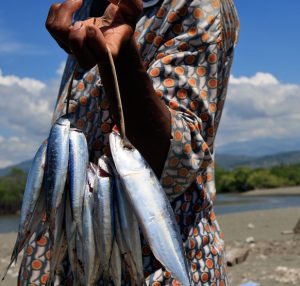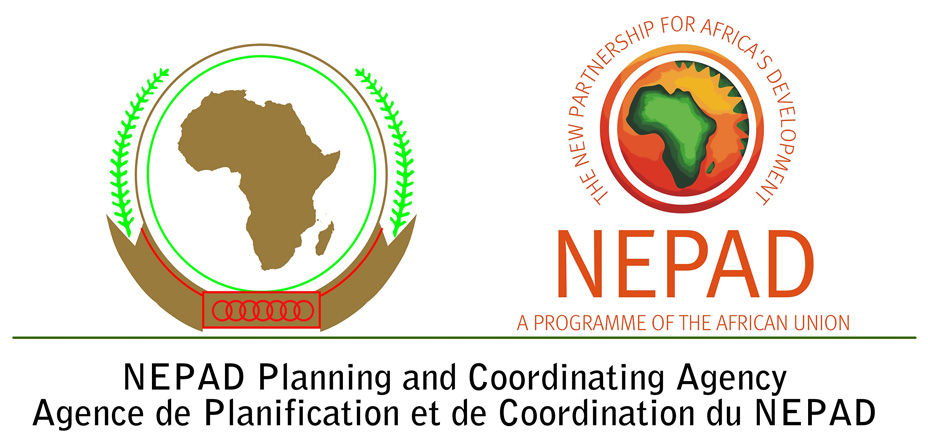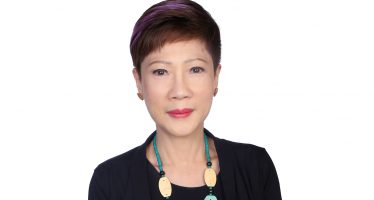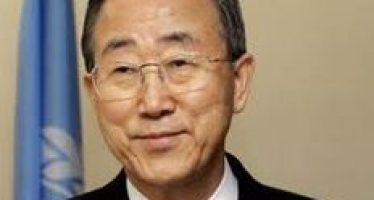NEPAD: Boosting Africa’s Most Valuable Renewable Natural Assets – Fish
 Sierra Leone’s fisheries sector, valued at 735 million US dollars, has received a boost from the Partnership for African Fisheries Programme (PAF), through 1,4 million US dollars disbursed by its West Africa Pilot Project (WAPP). This intervention will provide direct and indirect employment for over one hundred people, hoping to strengthen the livelihood of about five hundred people in Sierra Leone.
Sierra Leone’s fisheries sector, valued at 735 million US dollars, has received a boost from the Partnership for African Fisheries Programme (PAF), through 1,4 million US dollars disbursed by its West Africa Pilot Project (WAPP). This intervention will provide direct and indirect employment for over one hundred people, hoping to strengthen the livelihood of about five hundred people in Sierra Leone.
The Partnership for Africa’s Fisheries (PAF), managed by the New Partnership for Africa’s Development, NEPAD Agency, has been working to empower the fisheries sector by facilitating access to financial institutions, particularly to those most vulnerable to fishing such as small-scale and grassroots fishers. It also promotes responsible fisheries management, sustainability in Africa’s fisheries and supports reforms in governance and trade.
The fisheries sector of Africa has the potential to contribute about six percent of the continents annual economic growth; however, it has not enough resources to deal with this challenge because of over exploitation, illegal fishing, inadequate management, lack of economic constraints and the threat of climate change, according to recent estimates.
“… illegal fishing in Sub-Saharan waters is costing about 1 billion US dollars every year.”
Experts warn that Africa may be losing the potential to harvest between 2 to 5 billion US Dollars of economic returns every year due to mismanagement. Also, illegal fishing in Sub-Saharan waters is costing about 1 billion US dollars every year.
In order to deal with these challenges, PAF established and oversees continental working groups in key policy areas such as Good Governance; Illegal, Unreported and Unregulated Fishing; Fisheries Investment; Fisheries Trade and Access to markets; and Aquaculture. The working groups are composed of African and non-African experts in fisheries and aquaculture. They draw on experience in fishing communities, industry, government and educational institution.
PAF was established in 2009 as a collaboration between the NEPAD Agency and the UK’s Department for the Environment, Food and Rural Affairs (DEFRA) and builds on earlier fisheries reforms in Africa such as the Abuja Declaration on Sustainable Fisheries and Aquaculture in Africa.
It hosted the 2010 hosted first Conference of African Ministers of Fisheries and Aquaculture (CAMFA) in Banjul, The Gambia. This African Union-led conference was the first of its kind and facilitated information sharing and promoted dialogue on the role and importance of the fisheries sector. CAMFA was established as a policy organ of the African Union (AU) to provide high-level guidance for continent-wide reforms. In January 2011, the 16th Summit of the AU endorsed the establishment of CAMFA. Through CAMFA all AU member states have committed to develop and implement a Comprehensive African Fisheries Reform Strategy by 2013.
This was a milestone for the fisheries sector since fish is one of the leading export commodities for Africa, with an annual export value of nearly 4.8 billion and 614 million US dollars for intra-African trade. It also makes a valuable contribution to food and nutrition security on the continent feeding 200 million Africans yearly. In many parts of Africa, fish is considered as the only protein food and represents the sole source of essential elements and fats to many vulnerable rural African consumers, especially women and children.
However, Africa is still unable to meet its own fish consumption needs due to inadequate infrastructure, lack of financial resources, technologies and mismanagement and therefore has to import fish products.
Hence, fisheries is also integral part of the agenda of NEPAD’s Comprehensive Africa Agriculture Development Programme (CAADP) aimed at increasing food supply and reducing hunger through national budgetary allocation. So far, 30 African countries have signed the CAADP Compact to commit at least 10 per cent of their national budgets to agriculture. PAF supports these efforts and is being incorporated into their national CAADP food security investment plans, one of the key drivers to raise agricultural productivity on the continent to at least 6 percent annually.
In essence, PAF is about increasing, sustaining and protecting Africa’s most valuable renewable natural assets – fish – and to stimulate growth across the continent. This means strengthening Africa’s capacity to consider, determine and implement responsive reforms in fisheries governance and trade.
About NEPAD
The New Partnership for Africa’s Development (NEPAD) is a flagship socio-economic programme of the African Union (AU). NEPAD’s four primary objectives are to eradicate poverty, promote sustainable growth and development, integrate Africa in the world economy and accelerate the empowerment of women.
The NEPAD Agency is a technical body of the AU that advocates for NEPAD, facilitates and coordinates development of NEPAD continent-wide programmes and projects, mobilises resources and engages the global community, regional economic communities and member states in the implementation of these programmes and projects. The NEPAD Agency replaced the NEPAD Secretariat which had coordinated the implementation of NEPAD programmes and projects since 2001.
The strategic direction of the NEPAD Agency is premised on six themes: Agriculture and Food Security, Climate Change and Natural Resource Management, Regional Integration and Infrastructure, Human Development, Economic and Corporate Governance as well as Cross-Cutting Issues including Gender, ICT and Capacity Development.
You may have an interest in also reading…
It’s a Wrap! Containers Printers has the Industry Covered — but it’s just not Content to Rest on its Laurels
Driven by the conviction that sustainability is central to the future of business, CEO Amy Chung keeps her eyes on
Evan Harvey, Nasdaq: Medium Is the Message – ESG Delivery and Market Distrust
Despite cultural assumptions surrounding content and interpretation, we tend to believe that the way we communicate is meaningful. “In operational
UN: Education and Youth Unemployment Issues Must be Addressed Now
The process of establishing a post-2015 development agenda must include youth input and participation to reflect the issues that concern
















































































